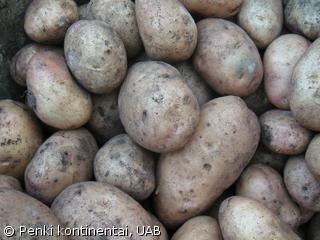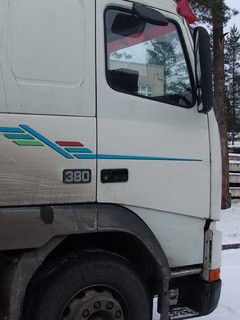WTO negotiators reach tentative accord on major global trade issues
Published:
5 August 2004 y., Thursday
Key trade ministers tentatively agreed Saturday on a plan to end export subsidies on farm products and cut import duties around the world, a key step toward a comprehensive global accord under discussion since 2001, trade officials said.
The deal was expected to be approved by all 147 members of the World Trade Organization later Saturday, opening the way for full negotiations to start in September.
"Developed countries have recognized that agricultural trade with a heavy subsidy component is not free trade," said Indian Trade Minister Kamal Nath.
But he said the United States, European Union and other developed countries will also benefit by removing heavy agricultural subsidies from their budgets.
Ken Ritter, president of the Canadian Wheat Board, said he's concerned the tentative deal would break a promise the Canadian government made to protect the grain marketing monopoly. In a breakthrough Saturday some 20 key countries approved a document setting out the framework for a legally binding treaty, World Trade Organization spokesman Keith Rockwell said.
The document will commit countries to lowering import duties and reducing government support in the three major areas of international trade - industrial goods, agriculture and service industries, such as telecommunications and banking.
The deal sets back in motion the long-stalled "round" of trade liberalization treaty talks that were launched by WTO members in Doha, Qatar, in 2001 but delayed by the collapse of the body's ministerial meeting in Cancun, Mexico, last year.
In agriculture, the document agrees to eliminate export subsidies and other forms of government support for exports, while making big cuts to other subsidies. It includes a "down payment" that would see an immediate 20-per-cent cut in the maximum permitted payments by rich countries.
Šaltinis:
Canadian Press
Copying, publishing, announcing any information from the News.lt portal without written permission of News.lt editorial office is prohibited.
The most popular articles
 The future of Europe's troubled car market and 12 million jobs was under scrutiny Tuesday.
more »
The future of Europe's troubled car market and 12 million jobs was under scrutiny Tuesday.
more »
 Europe must take the lead in finding solutions to the global crisis at next week's G20 summit, British prime minister Gordon Brown told MEPs in a speech in Strasbourg on Tuesday that was warmly welcomed by leaders of the main political groups.
more »
Europe must take the lead in finding solutions to the global crisis at next week's G20 summit, British prime minister Gordon Brown told MEPs in a speech in Strasbourg on Tuesday that was warmly welcomed by leaders of the main political groups.
more »
 The US and Europe are in the worst economic crisis since the 1930s. With unemployment rising dramatically and businesses failing, fear is spreading.
more »
The US and Europe are in the worst economic crisis since the 1930s. With unemployment rising dramatically and businesses failing, fear is spreading.
more »
 Monday evening sees MEPs consider the emotive subject of food prices in Europe.
more »
Monday evening sees MEPs consider the emotive subject of food prices in Europe.
more »
 Shares in Wincor Nixdorf AG have fallen 3.5 percent and the ATM company says it is preparing to cut production hours.
more »
Shares in Wincor Nixdorf AG have fallen 3.5 percent and the ATM company says it is preparing to cut production hours.
more »
 Leaders agreed to use €5bn in unspent EU funds to upgrade energy and internet connections. And they raised the ceiling on EU aid to countries having difficulties.
more »
Leaders agreed to use €5bn in unspent EU funds to upgrade energy and internet connections. And they raised the ceiling on EU aid to countries having difficulties.
more »
 Charges on heavy-goods vehicles should be based in part on the air and noise pollution they produce, according to legislation approved by the European Parliament today.
more »
Charges on heavy-goods vehicles should be based in part on the air and noise pollution they produce, according to legislation approved by the European Parliament today.
more »
 EU agriculture officials are about to get a reality check. Starting next year, their on-the-job training will include a stint on a working farm.
more »
EU agriculture officials are about to get a reality check. Starting next year, their on-the-job training will include a stint on a working farm.
more »
 Privatisation, balanced budgets, low public deficits, and free trade have long been the mantra for prudent economic management.
more »
Privatisation, balanced budgets, low public deficits, and free trade have long been the mantra for prudent economic management.
more »
 Building roads and pipelines, ensuring food safety, improving education, fighting discrimination and boosting jobs are all funded from the EU budget.
more »
Building roads and pipelines, ensuring food safety, improving education, fighting discrimination and boosting jobs are all funded from the EU budget.
more »